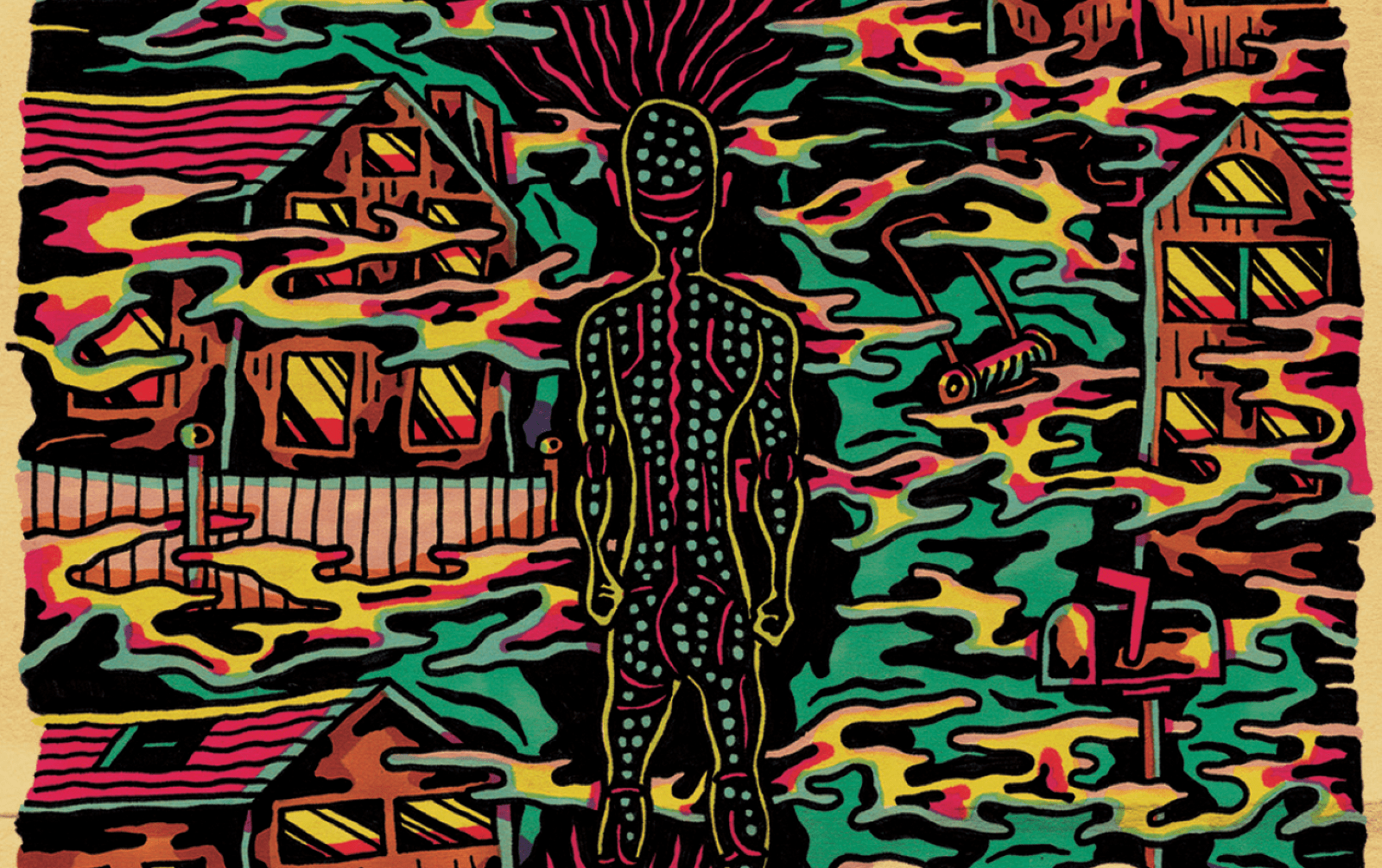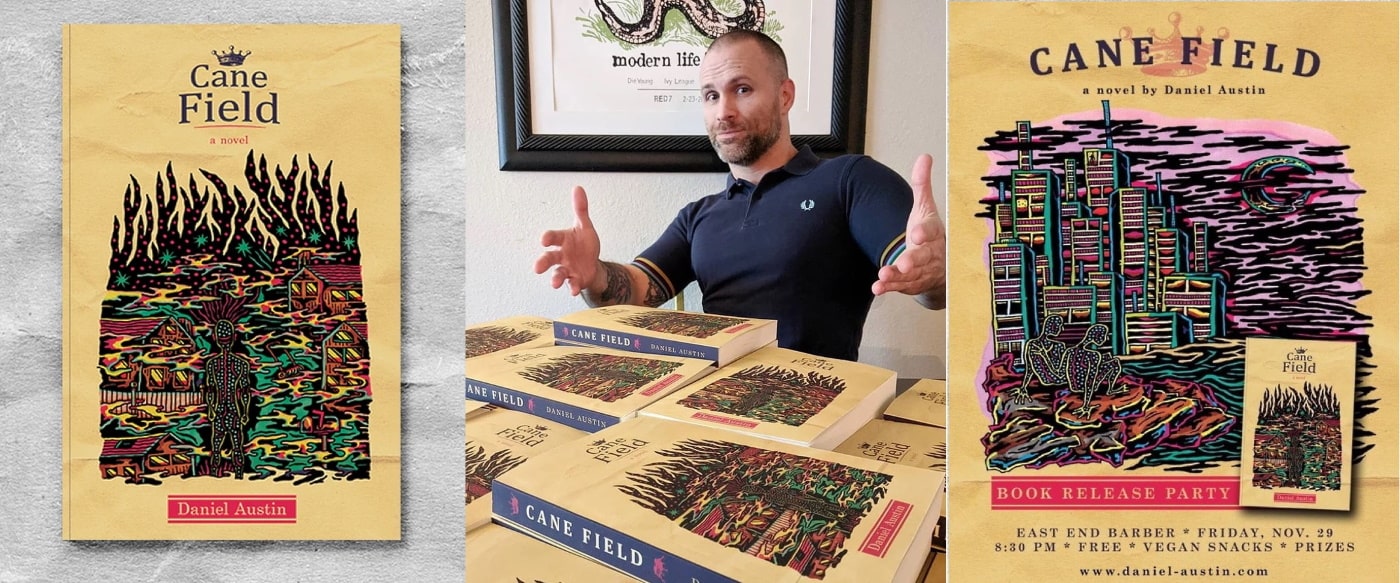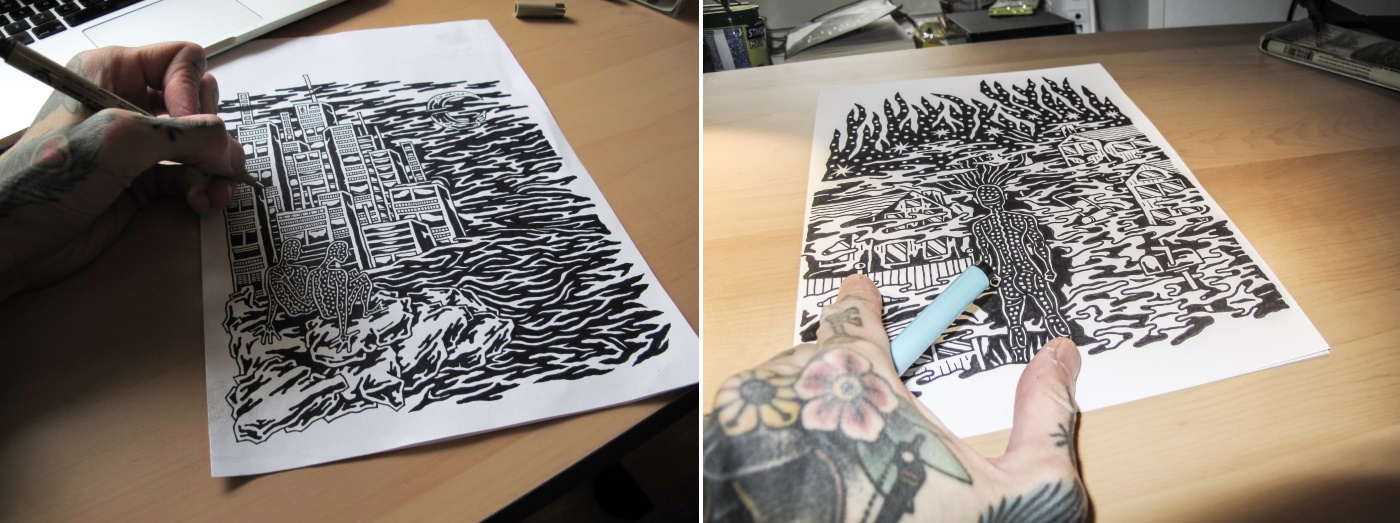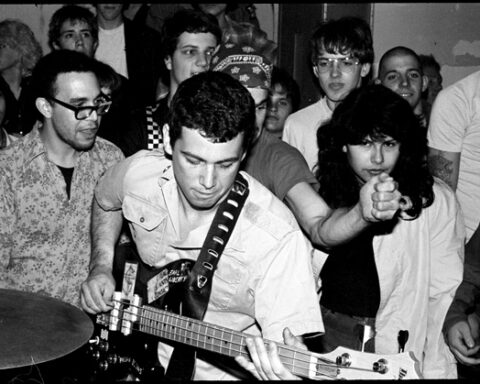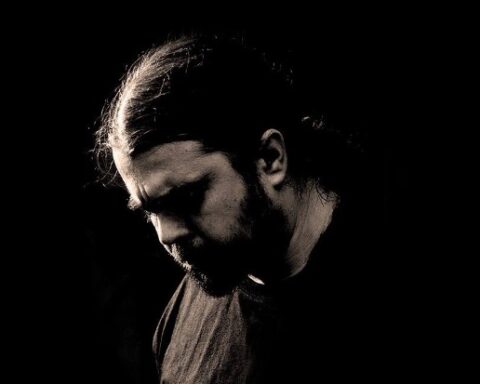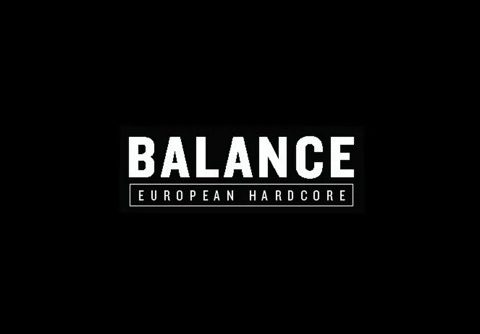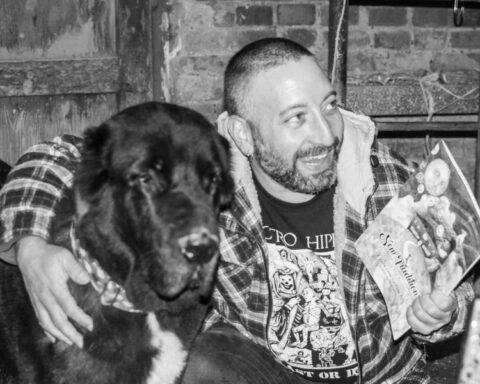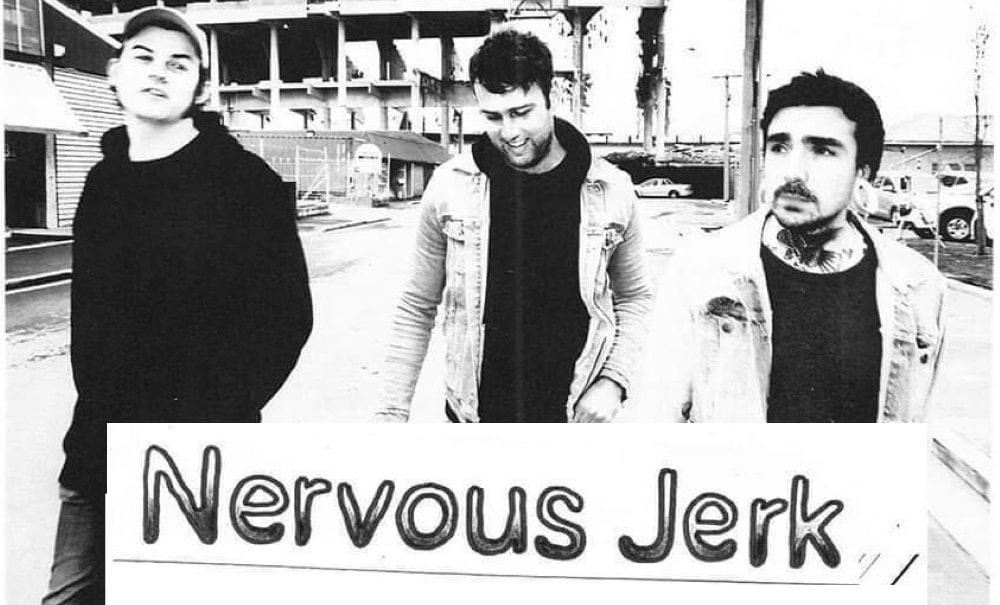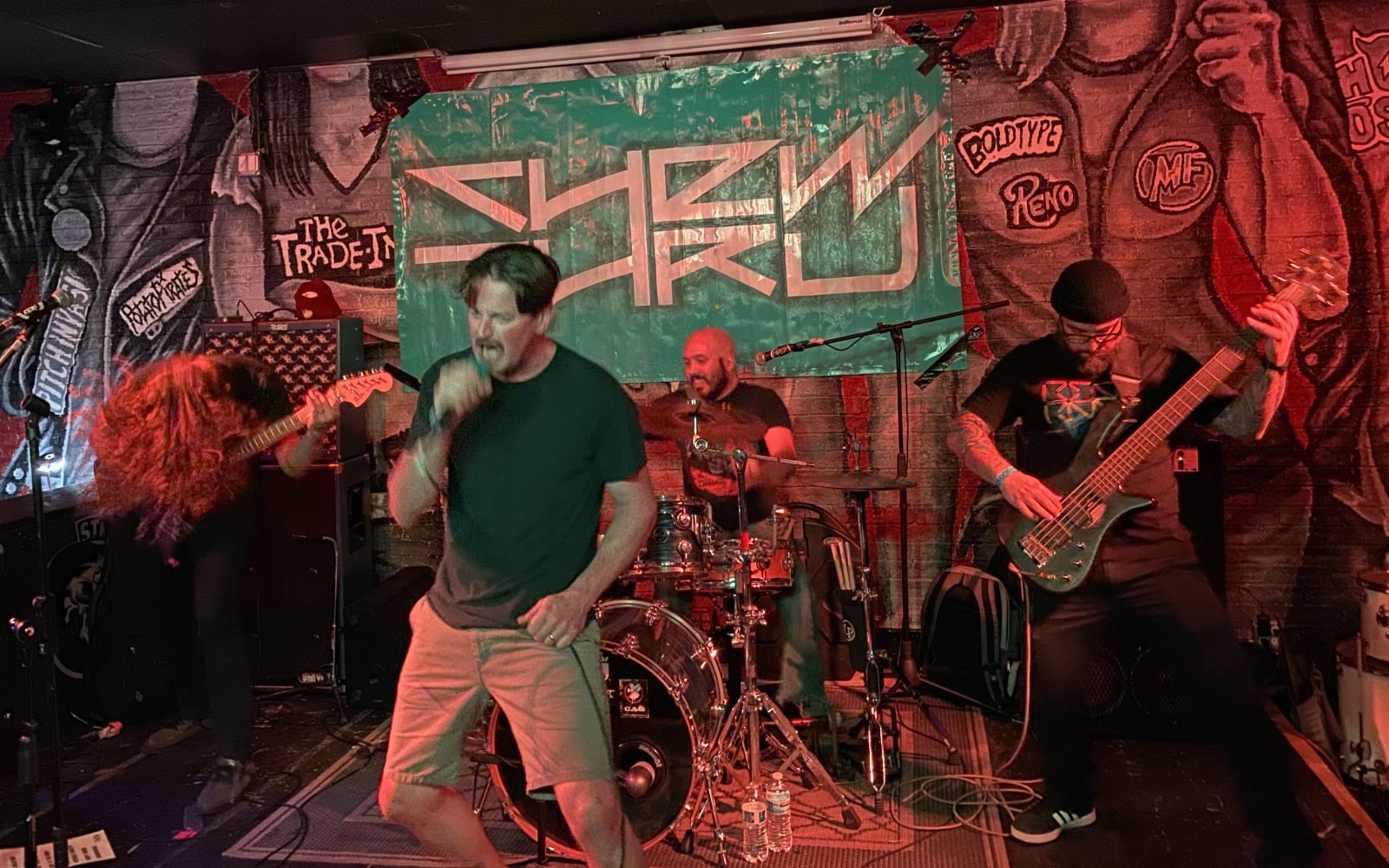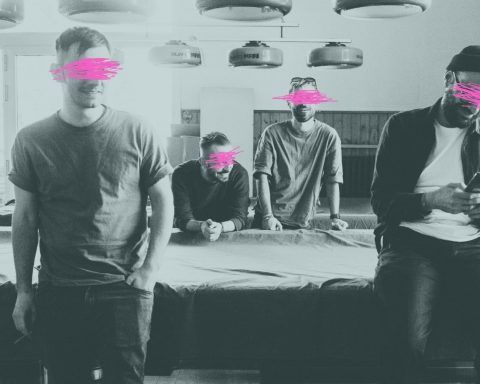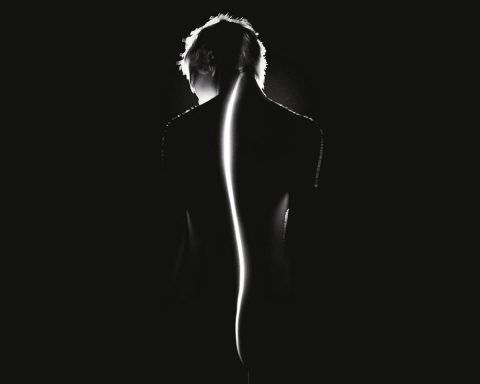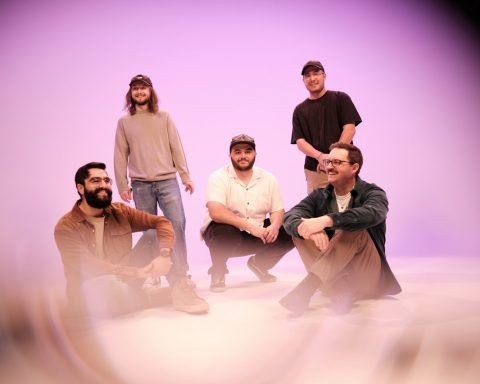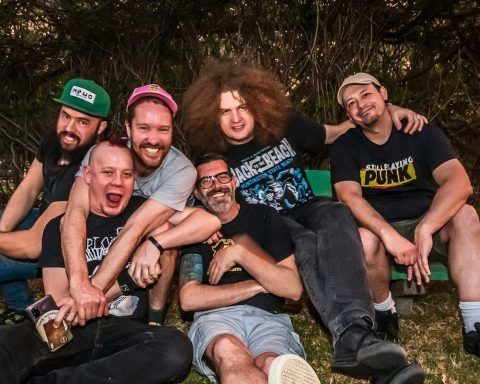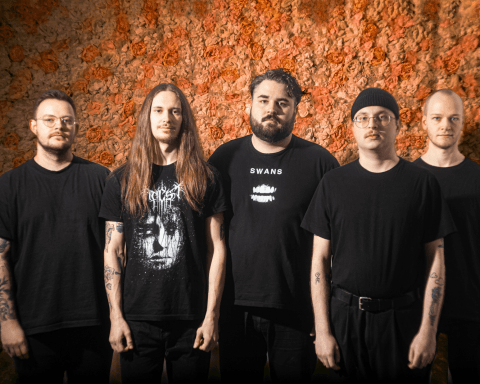DIE YOUNG vocalist, author, athlete and powerlifter, our longtime e-friend and special guest Daniel Austin has recently unveiled his first novel called “Cane Field“, a coming-of-age, confessional fiction story with its origins set in suburban Houston, Texas, covering some of his tours and songwriting origins in DIE YOUNG. To celebrate the birth of another impressive project from this creative mind, we have teamed up for an insightful interview
Cane Field is the tale of a young musician going through existential crises of desire and values, who reaches out to his high school crush in an attempt to seek closure for the shared disappointments of their youth, but his attempt to reconnect is stifled by the sudden shock of her father’s suicide.
This novel was partly inspired by my early years as a touring musician and shares true-to-life stories I experienced while on the road in both Finer Truth and Die Young. In doing so, Cane Field portrays the duality of a musician’s life–from the deeply vulnerable shadows of their inner emotional life to the very public show the performer must put on to be a light for others.
Cane Field delves boldly into themes of identity, depression, love, obsession, and codependency, but I assure you it brings you plenty of comic relief along the way as well.
Daniel! Long time, no talk! You’ve just closed the 3-year long era of preparing your debut novel, and here it is, finally available for everyone! How does it feel to have it finally out?
It is a big relief. Time to let this thing out into the world and move on to the next big project.
How were the book release parties in Houston and Austin?
They were fun, “intimate” events. Mostly friends and family. I’m grateful for the inner circle that supports me.
With your super busy schedule, competitive powerlifting (which you seriously dove into), advocating for animals, your work with DIE YOUNG, and of course, writing, it sounds like a pretty rounded full on lifestyle. How do you make them all fit without compromising any of these aspects of your life?
Honestly, sometimes some aspects of my life do get compromised. Perhaps I attempt to be too industrious for my own good at times. There is just no way to go 100% with everything at once, so things kind of naturally fall into a rotation with exception of powerlifting. Powerlifting is a core part of my weekly routine–no matter where I am or the circumstance. And contrary to what people would figure, the physical activity helps me keep my mind clear, relatively anyway. So on busy days when I need to put some writing in, I usually get all my day-job and daily duties with my animals and eating done, hit the gym, come back, eat some more, and tell myself to put in an hour of writing before bed. Sometimes it winds up being two hours, especially if I get a good creative flow going. Either way, you just have to force yourself to put the time in, especially because life can be so busy. That workout in the evening is my physical and mental reset button which helps me reinvigorate myself to be more productive before bedtime. I honestly think having many things to do is what forces me to manage my time and energy to the best of my ability. At times when I’ve had less to do, I got less done. Funny how that works.
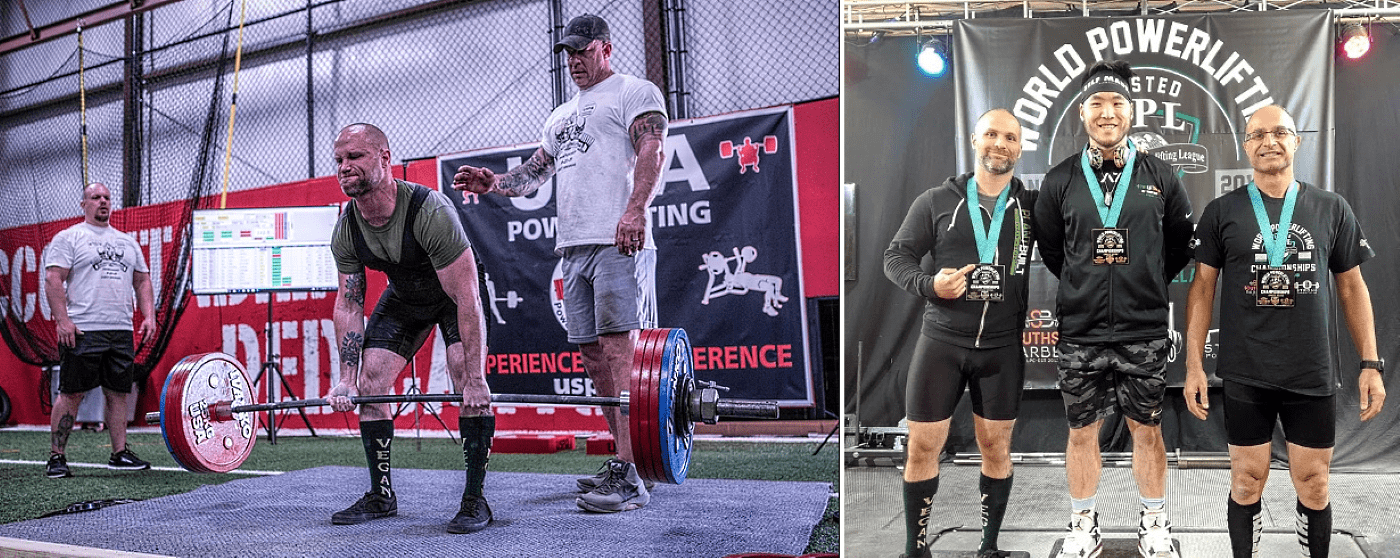
Has it always been a desire of yours to write and become an author?
Maybe not consciously, at least not when I was younger, but ever since I really got into music, I have naturally been churning out lyrics–even since my early teen years, before I was ever singing in a band. I just always had that inclination to express myself with words. I think writing books or poetry is just a step or two beyond that natural lyric writing process, but writing lyrics was where I first learned to articulate myself. Obviously, now I am putting out works that are hundreds of pages, so the process takes longer and requires a lot more concentration and editing, but I think it all comes from the same kind of place–a desire to express, no matter what the medium is.
Before you got serious about writing outside DIE YOUNG’s craft, do you feel your consciousness of writing had evolved and got you to this level where you’re ready to focus on this format alone, without music?
There were a lot of things pulling me towards writing in various formats. I recall times writing emails to people, or occasionally making some social media posts years ago, when people would respond and tell me I was good at writing or that they enjoyed reading what I wrote. Getting little nudges of encouragement like that over the years made me think maybe I should challenge myself more with writing, because if you discover you have a knack for something naturally, you really should explore developing that skill. That could be your thing, your calling, whatever you want to call it.
And about writing for Die Young, I think Die Young has over 60 songs or so, and our side band (Band of Mercy) had nearly a couple dozen. That’s a lot of lyric writing on my part. I got the chance to express my thoughts in a somewhat restrictive format to all of those songs, but I could always elaborate on those subjects (as I often did and do live), and there are tons of other subjects I’d love to talk about or write about that maybe wouldn’t make much sense in a song format. So there also came the impulse to write poetry, and eventually, this novel format. My best friend and I have also taken up screenwriting, too. These are all essentially the same skill put into different formats. I want to be good at them all, so I stay very busy trying to hone this craft. I’ll always be happy to write more songs too, should the opportunities keep presenting themselves.
With “Cane Field”, was there quite a strong vision you had for this novel in the first place? Tell us a bit about how you started writing it and what led you to the understanding that you’re actually creating something different.
For anyone who plans to read the book, or if you have read the book already, there is a dream described in the book. That dream is pretty true to life, as best as I could recall it after waking up. That dream and the epiphany it gave me were what made me realize I had some remarkable pieces of a story, which was a real story that was so strange it really needed to be told as fiction. I then spent a couple weeks mulling over how to mold all these pieces and strange events of my life together in a fictional way, and then it all hit me, like a song that you write a hook for by happy accident, and the rest kind of writes itself. I began writing furiously, almost like I was in autopilot mode, and I finished the first draft in a couple months. At that point in my life, I’d never written a couple hundred pages before. It felt like an accomplishment just to know I had that much rough material in me, and that it wasn’t as hard as I thought to manifest it. So, strangely, I guess you could say Cane Field really started with a dream that shocked me into action.
One common bit of the advice for writers of first novels would be probably giving the initial idea the time it deserves. On the other hand, you shouldn’t be working too long, not to get stuck in the trenches writing, right? How was this process with “Cane Field”?
I don’t consider myself an expert (haha), but I agree with that. You need to be able to feel your writing for it to be good, so you can’t over-analyze it too much. I think that might go for almost any good art. Like I said at the beginning of this interview, I am happy to have this story off my plate and to be on to the next thing for me. Cane Field is the most scrutinized piece of creative work I’ve put out so far. It really took three years of writing, reviewing, editing, walking away from it and coming back in hopes of having fresh eyes and feelings for the material, and then editing and adding content all over again. It’s a ridiculous and meticulous process that could easily go on forever if someone is neurotic enough to keep trying to perfect it. For the sake of sanity, you eventually have to let the project go so you can get on with life. Either release it or bury it. There are anxieties and disappointments that come with either choice, and there are things about Cane Field I am sure I’d still fix or change.
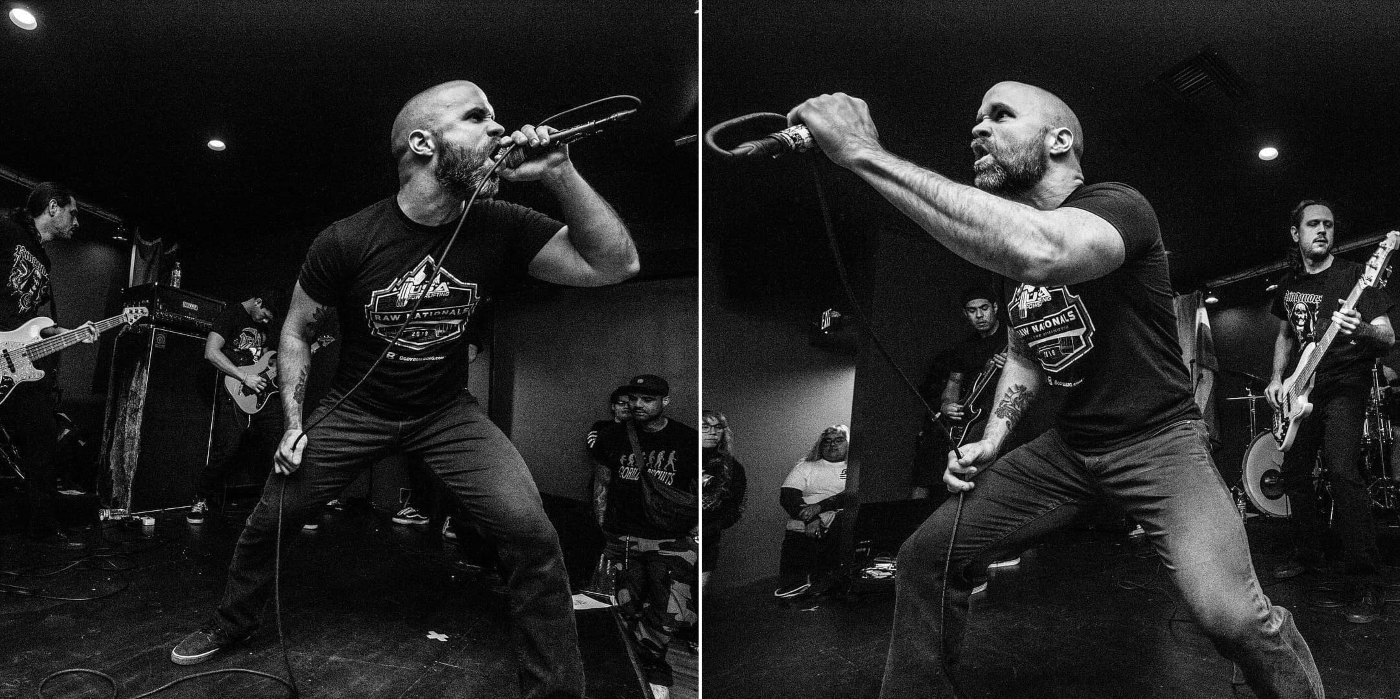
I’d say the same for every single Die Young record, too. Perfection just doesn’t exist for the artist, and if you can’t accept that you end up withholding all your material to yourself forever. You just have to do your best to create to the best of your ability but also understand that every project you undertake is a new learning experience in which you are exploring yourself and honing your skills for articulation. So now that this learning experience is done, I’ve already got my sights set on new horizons, and because I wrote my first novel, I’m all the wiser for it.
You penned out an interesting reflection of your own self and personal experiences gained through touring and growing as a person. What inspired you to address these themes, and how do you see it speaking to young readers? Also, how do you imagine the profile of your reader for this book?
It’s funny. My aunt, who I love, and who is a very nice person, ordered the book from me, and I sent her the copy she ordered thinking “Uh oh, she’s gonna hate this!” haha. She just doesn’t come from my background, which I would characterize as impractical, down-and-out living among the fringes of society, even though I fully admit I came from indisputable middle-class American privilege. I just mean that our adolescent and adult lives have been very different. I’ve spent most of my adult life among starving musicians and passionate activists, and I still experienced a lot of alienation growing up, as I think most punks and metalheads have. Even the higher rungs of society have their outsiders. By my teenage years, I didn’t identify with sports culture, or religion, mainstream music, or with most people at school, and so on. I grew up in the middle of society, but still felt on the fringe. I didn’t have many mechanisms for connection with the bulk of people around me, and most people who do have some of those mechanisms for connection with their culture (their modern tribe) simply don’t identify with that sense of alienation I’ve built upon in my music, and now in my writing–they may instead feel as if they do belong in church or school, or get a cathartic sense of belonging in sports culture, especially when their home team wins. Financial success and attracting partners may come easy to them. It’s fair to say that kind of success just isn’t typical of most people who find punk and hardcore, or most people who spend years of their lives playing independent music or working for non-profits that aim to change the world, if I am to speak generally. These people are more driven by discontent than other people. That is me and a lot of people I know, for sure. Now, in my novel, Cane Field, I am not necessarily condemning the mainstream. I am just portraying the experience of a different kind of person, just for being what it is and with the intention of conveying no more pretense than that. I asked my uncle what my aunt thought of the book, and he laughed, trying to dodge answering because he seemed to be worried that I’d be disappointed. She apparently put it down after ten pages, haha. I told him I was not offended at all, and tried to rationalize things this way to him: take a popular punk band, like Bad Religion. They are easily one of the most successful punk bands of all time. They have millions of listeners worldwide if you go streaming app statistics. If you do the math, even a super successful band like Bad Religion has only swayed about .0001% of the world’s population. That means 99.99% of people in the world either don’t know who Bad Religion is, don’t find them relatable, or just don’t like them. Yet my friends and I have always thought they are one of the greatest bands we’ve ever heard. So likewise, I fully anticipate that I’ll be lucky if my fate as a musician or writer yields me far less than Bad Religion’s success. I think my book is mostly going to appeal to people who can identify with my background and relate to the experiences I’ve portrayed–we can call that punk, hardcore, fringe, whatever. I know it is already a limited audience anyhow, but I think it’s mostly only fair to write what you know. How else can you be authentic?
What important beliefs and messages do you express in or through your writing in “Cane Field”? Is it possible to define such a spine here?
Unlike a lot of my lyric writing, particularly in early Die Young material, I am not trying to make any demands on readers in Cane Field. I am simply describing situations, personalities, environments, and I think how each reader relates to this content is going to depend on their own life experience and interpretation of the world. For the most part, Cane Field is a coming-of-age story about the development of a young man who starts out as both naïve and self-righteous. He thinks he knows just about everything, as most adolescents and young adults typically do, but both time and experience teach him some humility. Through the course of his life and his interactions with lovers, friends, bandmates, family, etc., my intention was to explore the suburban American landscape and the sense of mystery underneath the illusory surfaces of comfort, security, and privilege. I don’t really have any intention with this story beyond giving pause to reconsider the way each of us perceive reality, from our notions of our own personal identities, to what we think we know about other people (even those closest to us), and to consider the role our backgrounds and social landscapes play in the development of these perceptions. And ultimately, along the way, I hope readers find a sense of connection, laughter, and catharsis in the stories that make up Cane Field. No matter where we came from, or how good we may have had it, you can bet we’ve all got problems.
Publishing wise, what’s it look like nowadays? How do you publish a novel and how was this process in your case?
I self-published this book, and with the on-demand printing services available these days, I think writers are more enabled than ever to release content with low overhead and low financial risk. So that is nice. If you can do your own graphics, you can publish a book for relatively little money. I did hire an artist for the cover artwork, and I did pay a friend to do a rough editing job, but aside from ordering my initial batch of author copies to sell myself, I didn’t really have any other expenses. As for process, you have to start with the manuscript. I have always heard that for novelists the first novel is usually unpublishable garbage (haha) which is mainly valuable as being an exercise to learn how to write an in-depth story. I don’t disagree with this sentiment, and I questioned myself a lot about whether Cane Field was a story worth sharing. I let a handful of friends read the first couple drafts of it, and each time I was surprised that they enjoyed it. I really asked people to be harsh about the criticism if they had any. Friends can tend to cushion the blow sometimes, but they swore up and down that they liked it, that they found it relatable in both heartfelt and comical ways. So that was encouraging. Eventually, an estranged music buddy from the west coast who has since become a literature professor reached out to me. He said he enjoyed my voice in my first published book, The Way of The Vegan Meathead, which is a non-fiction self-help book about following a vegan strength diet. He said it helped him with his diet and training on a practical level, and he was curious if I was writing anything else, so I sent him the Cane Field manuscript, and I asked him if it was any good, or even worth publishing. He gave me a ton of really constructive feedback, but he was mainly encouraging and said “yes, this does deserve to be published in at least some format.” At that point I told myself “what the hell, I may as well put this thing out into the world.” From there, I did another couple draft edits, got a law school friend to do some DIY editing, and commissioned artist Marc Strömberg to bring my cover ideas to life. I did all the layout in Adobe InDesign myself, and cover layout was put together in Photoshop by me as well. Lastly, there is a lot of backend administrative type work to get the book released–barcode assignment, ISBN number registration, things like that.
Tell us a bit about the artwork and original cover for ”Cane Field”, how it related to the content of this novel, and how you ended up working with Marc Strömberg.
Marc and I got acquainted when Die Young put out the No Illusions LP in 2016. He featured that record on his Hardcore and Soda Instagram, which was funny. I didn’t know he was an artist, but when he saw I was working on The Way of The Vegan Meathead he reached out to me and offered his services as an artist, so I looked at his portfolio and thought he very well could be the best for the job. In the end, he definitely was. I thought he captured the vibe and personality of that book perfectly, and he finished the piece so quickly. I have since commissioned him for other Vegan Meathead shirt designs, and it’s been a pleasure to work with him each time. Originally for Cane Field, I intended to let an old high school friend who is a talented artist take a shot at the cover ideas, but I don’t think she has done much commissioned work, and she turned out to be uncomfortable working under pressure. I don’t mean that I was pressuring her about it, but it was just a dynamic for creating art that she wasn’t used to, and she kept feeling stumped on how to bring my ideas to life on canvas, and in her head I think she felt pressure to deliver a product and it really stifled her creative process. So I went right back to my tried and true artist, Marc, and he knew exactly what to do right away. In a couple weeks he knocked both the front and back covers out, capturing the vibe I wanted perfectly with ink and watercolor. He’s the man.
Ok, so lastly, it wouldn’t be a complete IDIOTEQ interview without some questions about DIE YOUNG. A lot has changed since your “coming back” in 2014. How do you see the inspiration to run this band evolving in 2019?
At this point, we have stopped “trying” haha, at least in terms of playing shows. We still give our recordings 110% but those happen less and less often, too. Since 2018 we’ve basically agreed within the band that if we never get asked to do another show again, then we simply won’t play anymore. When we were younger and ambitious with Die Young, we went seeking opportunities all the time. Now we just lay back and let them come to us, and maybe we write a few songs here or there. Fortunately, we still get asked to play some shows now and then, and that is nice. Die Young used to be my life, but now it is more of a hobby. I still find it to be a useful outlet for expression though. I think I enjoy the camaraderie of making music with these guys more than playing shows now, but occasionally playing shows is good, too. Overall, we are most interested in quality over quantity these days, in terms of playing shows and releasing music, too.
Your recent track “Defective Machines” delivered great lyrics that prove your writing skills and listeners around the world seemed to really appreciate that. When can we expect some new tracks from you guys?
I really don’t know. “Defective Machines” may be the last thing we ever do. The writing process has changed for us. It’s not 99% my ideas anymore. When guitarist Allan Davis joined the band to write solos for No Illusions, I saw that he had very advanced songwriting skills, and he was eager to take the reins with the riff-writing. He’s done a great job, and these days I have kind of resigned to just being the conceptual leader of the band and lyricist, solely. I may help Allan “direct” song structures in his creative process as he sends me tracks he’s writing, but I mostly sit back and enjoy this ride more than I ever did before.
How about shows? Will there be some more gigs in the coming months, perhaps including Europe? :)
Man, I hope so, but there are no guarantees. We intended to be back before now, but each year we’ve made plans to come back to Europe (two years in a row at Fluff Fest got scrapped after essentially being confirmed), things just ended up not fully working out and we had to cancel. Would be nice though, so I do hope we find the right deal to come back eventually. I know we’re all interested in making that happen.
Alright Daniel, thank you so much for the huge update and many insights about the book. I truly appreciate your work and can’t wait to see and hear more work from your creative mind. Feel free to share your final words and take care! Cheers from Warsaw!
Thanks as always, Karol.
Support Daniel Austin’s work directly at daniel-austin.com and Vegan Meathead; follow him on Instagram via @veganxmeathead / @dieyoungtx; get your copies of Daniel’s work via Amazon.



